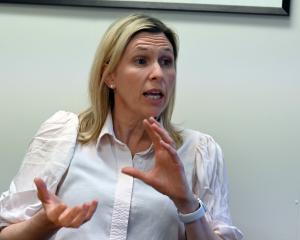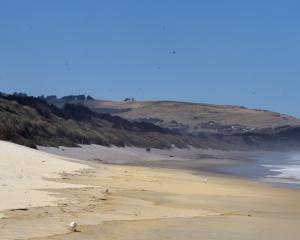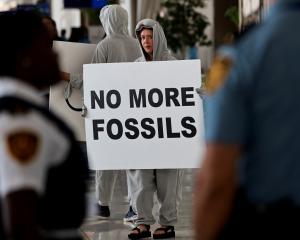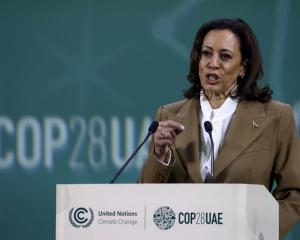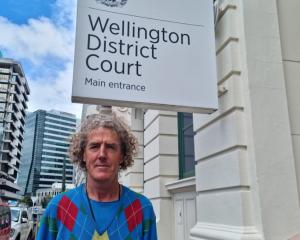Prof Keith Hunter, the head of the university's chemistry department and climate change specialist, said the outcome left unanswered questions about where to move next in the international effort to control global warming.
Without a binding international agreement from Copenhagen, he believed attention would likely turn towards how best to live with climate change, rather than efforts to stop it.
"We are just completely addicted to fossil fuels. It's far worse than trying to give up smoking," he said.
"The realist in me says it's never going to change quickly."
Prof Hunter's comments came after United States President Barack Obama announced the US, China and several other countries had reached an "unprecedented breakthrough" on Friday to curb greenhouse gas emissions - including a mechanism to verify compliance.
The agreement, which also includes the developing nations of India, South Africa and Brazil, required each country to list the actions they will take to cut global warming pollution by specific amounts.
The agreement disappointed New Zealand Prime Minister John Key, who described it as a "political statement" and said it did not go far enough, while Green MP Jeanette Fitzsimons labelled it a "tragedy for humanity".
Prof Hunter was more cautious yesterday, but still described the agreement as "fairly lukewarm", and, when asked, said he would give the Copenhagen summit a score of only "five out of 10".
"I guess a lot of people would say it's a failure because they didn't come up with a concrete agreement on how to proceed and do it earlier than 2050.
"I think, like a lot of people, I'm disappointed that it didn't come out and deal with the issues more immediately.
"In a way, you could argue it's been swept under the carpet . . . We really are handing an economic legacy to what is two generations away, and that's always easy to do," he said.
Prof John Hannah, an authority in sea-level rise from the university's national school of surveying, said he had resigned himself to Copenhagen's eventual results.
Only an imminent global catastrophe - rather than one 40 years away - would be likely to force leaders into immediate action, and the world was already almost committed to a 2degC rise in temperatures anyway, he said.
"I'm not sure this is a momentous decision really. My expectation was not that high to begin with. My feeling was, going into [Copenhagen], it was unlikely it would produce anything of great significance in such a short time.
"It sort of lived up, unfortunately, to my expectations."
However, both men agreed Copenhagen was not the planet's "last chance", and Prof Hunter was encouraged to see agreements including a $US30 billion ($NZ42 billion) international fund to support developing countries, and on the need to reduce agricultural emissions.
Copenhagen was a step in a long process, but so too would be the next Intergovernmental Panel on Climate Change (IPCC) report due in 2013, he said.




